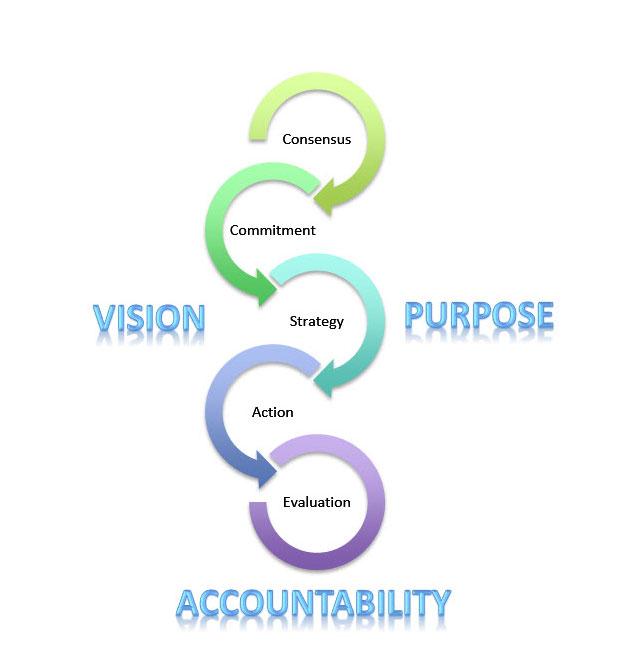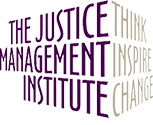Ever sit around a table with your intra and interdependent partners and believe that the verbal consensus to a plan of action is equal to the commitment? Most leader’s have had this experience and scratched their heads when there was a failure to execute an agreed upon strategy and plan of action. We posit that consensus does not equal commitment and that many well-intended leaders fail to recognize the difference.
Our eight-phase model for achieving sustainability puts forth the belief that a leader’s investment at the front end will help ensure a lasting and sustainable outcome.
urrounding our model are the organizations’ or systems’ vision, purpose, and accountability – the three major cornerstones of sustainability. However, we attempt to highlight the steps necessary to achieve these cornerstones, and in particular, the likely breakdown between consensus and commitment.
There are a number of reasons this may occur, including and not limited to:
- Public expression of agreement may not be true
- Competing priorities can derail intent
- Assumption that the representative has the authority to commit
- Day-to-day work gets in the way of moving bigger initiatives, especially those not affecting the day-to-day organizational responsibilities
- Funding priorities shift
- Political agendas change
The Justice Coaching and Consulting Center offers a variety of services to support achievement and sustainability of an organization’s goals. We tailor our services to target the immediate and long-term challenges of leading today’s complex organizations and companies.






